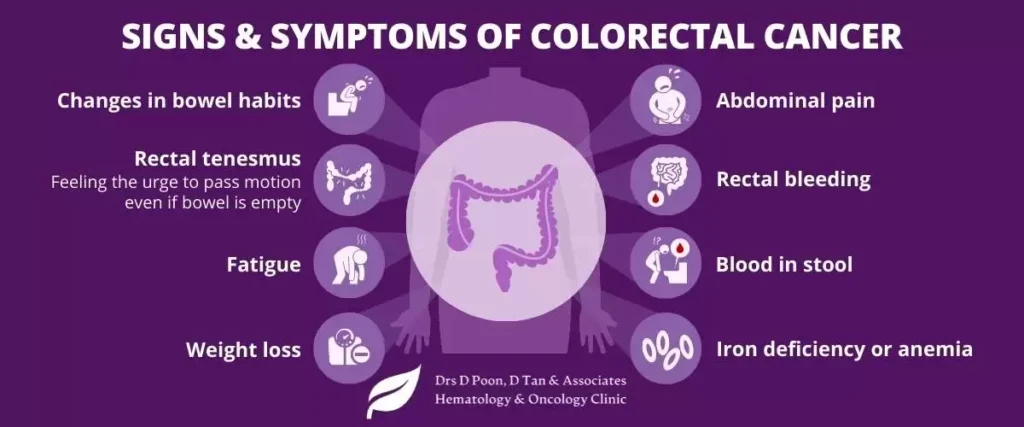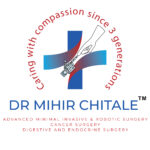Understanding Colorectal Cancer
What is Colorectal Cancer?
Colorectal cancer is a type of cancer that begins in the colon or rectum, parts of the large intestine. It usually starts as small, benign growths called polyps, which can become cancerous over time if not detected and removed. Early detection significantly improves treatment outcomes.

Common Symptoms of Colorectal Cancer
While symptoms may vary depending on the stage, some common warning signs include:
- Persistent changes in bowel habits (diarrhea, constipation, or narrowing of stool)
- Blood in stool (bright red or very dark)
- Unexplained weight loss
- Fatigue or weakness
- Abdominal discomfort, bloating, or cramps
- Feeling that the bowel doesn’t empty completely
Note: In early stages, colorectal cancer may not cause noticeable symptoms — making regular screening very important.

Care & Management of Colorectal Cancer
Managing colorectal cancer involves a combination of medical treatment, lifestyle care, and emotional support:
- Medical Treatment Options
- Surgery to remove tumors or affected areas of the colon/rectum
- Chemotherapy and radiation therapy depending on cancer stage
- Targeted therapies and immunotherapy in advanced cases
- Lifestyle & Supportive Care
- Balanced diet rich in fruits, vegetables, and fiber
- Regular physical activity
- Stress management and mental health support
- Following up with regular check-ups and screenings
- Preventive Care
- Screening tests like colonoscopy, stool tests, or sigmoidoscopy
- Avoiding smoking and excessive alcohol consumption
- Maintaining a healthy weight
FAQs About Colorectal Cancer
People over 50, those with a family history of colorectal cancer, inflammatory bowel disease, poor diet, smoking, or sedentary lifestyle are at higher risk.
Through screening methods such as colonoscopy, stool-based tests, imaging scans, and biopsy.
Yes. When detected early, colorectal cancer has a high treatment success rate. Advanced stages may require ongoing treatment but outcomes continue to improve with modern therapies.
Generally, screening starts at age 45–50, but earlier for those at higher risk. Frequency depends on test type and medical advice.
Yes. Eating a fiber-rich diet, exercising regularly, avoiding tobacco and alcohol, and maintaining a healthy weight can significantly reduce risk.


